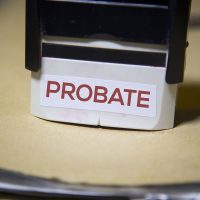Caution: Writing Your Own Deed to Avoid Probate Can Lead to Unintended Consequences

Are you wondering how to avoid probate in Maryland? If so, you want to make sure you’re going about it the right way…
In Howard County and beyond, one common way to avoid probate of real estate after the owner dies is to hold the title to the property in joint names with rights of survivorship with children or other beneficiaries. This is accomplished by adding the names of the children and certain legal terms to a new deed for the property and then recording it in the applicable public land records. But, if you don’t go about it the right way you could end up with an invalid or defective deed.
How to Avoid Probate in Maryland? DON’T DO THIS!
In trying to figure out how to avoid probate in Maryland without spending a lot of money, many people mistakenly believe that they do not need to pay an attorney to help them prepare and record the new deed. Instead, they think that a deed form can simply be downloaded from the internet or obtained from a book that can then be easily filled out and recorded. But deeds are in fact legal documents that must comply with state law in order to be valid. In addition, in most states, property will not pass to the other owners listed in a deed without probate unless certain specific legal terms are used in the deed.
How is a Defective Deed or an Invalid Deed Corrected?
If the problems with a defective deed or an invalid deed are discovered before the owner dies, then the problems can be addressed by preparing and recording a “corrective deed” in the applicable public land records. This should only be done with the assistance of an attorney.
Unfortunately, many times the problems with a defective deed or an invalid deed are not discovered until after the owner dies. If this is the case, then the problems cannot be fixed with a corrective deed since the deceased owner is unable to sign the corrective deed. Instead, the property will most likely need to be probated in order to fix the problems with the title. Obviously, this is counterproductive if your original goal was to figure out how to avoid probate in Maryland!
Aside from probate taking time and costing money for legal fees and court expenses, until the problems with the title are sorted out in probate court, heirs will not be able to sell the property. Or, worse yet, the property may be inherited by someone the owner had intended to disinherit when they prepared and recorded their own deed.
How to Avoid Probate in Maryland… the RIGHT Way!
So, what should you do? If you want to add your children or other beneficiaries to your deed in order to avoid probate, and you think you can save a few bucks by using a form you find on the internet or in a book, think again. Deeds are legal documents that have very specific requirements and are governed by different laws in each state (in other words, a deed that is valid in New York may not necessarily be valid in Maryland).
If you want your home or other real estate to pass to your children or other beneficiaries without going through the probate process, then seek the advice of Andre O. McDonald, a knowledgeable Columbia, MD estate planning attorney who is familiar with the probate and real estate laws of Maryland. This will insure that the deed to your real estate will be valid and your property will in fact avoid probate and pass to your intended heirs. Call McDonald Law Firm today at (443) 741-1088 to schedule a consultation.
DISCLAIMER: THE INFORMATION POSTED ON THIS BLOG IS INTENDED FOR EDUCATIONAL PURPOSES ONLY AND IS NOT INTENDED TO CONVEY LEGAL ADVICE.











